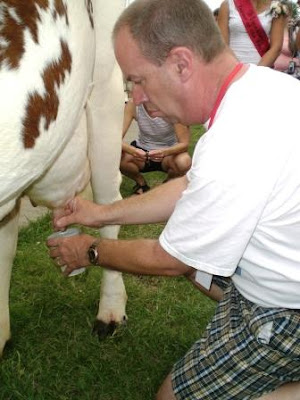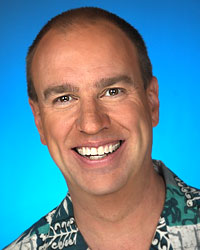
From the day the Bush Administration took office, government agencies created to help working people have been under attack. It began with the appointment of Elaine Chao as Labor Secretary, something akin to naming Typhoid Mary to the Board of Health. A department created "to foster, promote and develop the welfare of the wage earners of the United States" became a haven for unfair employers. Chao's first move was to deprive six million workers of the right to overtime pay (she even advised employers how to exploit the new rules). Next, her department slashed funds and staff for workplace safety and repealed regulations to protect workers from repetitive motion injuries. The department continues to strongly oppose any increase in the minimum wage.
But it wasn't enough just to keep workers down. Even more important to Bush and Rove was the need to stifle union organizing. That was accomplished by Bush appointees to the National Labor Relations Board who have manipulated the rules so that the NLRB has become a tool to penalize rather than protect workers seeking union membership. When Democrats sponsored legislation to allow workers to skip the NLRB and organize by "card check," who was it in the Senate who stopped it in its tracks? Elaine Chao's husband, GOP minority leader Mitch McConnell.
Why are Bush, Rove and the GOP Congress so willing to pull out all stops to deny unions the right to organize? Because unions have what the GOP can't buy: committed grassroots political activists who leaflet, phone bank, and educate their members better than any other organization in America. It helps explain why union households vote in record numbers.
It had to send a shiver through Republican ranks when AFL-CIO President John Sweeney promised Democratic Presidential candidates at a Chicago debate last month that 2008 "will be our biggest election effort ever." (Just a week later, Rove announced he was retiring.)
Fox News and other right-wing political pundits try to have it both ways: they belittle organized labor as weak and passé, and then they rail against the threat of "Big Labor." What "threat" does Labor pose? What they ask of candidates they endorse is that they fight for universal health care, affordable housing, safer workplaces, lower college tuitions and other issues that ordinary people care about. By contrast, GOP candidates have some heavy-lifting to do on the campaign trail, justifying to voters the priorities of their corporate backers.
The grassroots election fervor created by organized labor - all those enthusiastic, placard-waving union members, a sea of brightly colored T-shirts - drives Rove crazy. Somehow he never can muster shouting hordes of manufacturers or Jaycees at his rallies where attendance is pre-screened. Bankers and Realtors and corporate executives aren't much for leafleting or phone banking either, and you can't expect those Jags and stretch limos to car pool voters to the polls on Election Day.
After nearly seven years of taking the best shots the Bush administration can give them, resilient and resourceful unions and their members are upbeat and optimistic this Labor Day. Rove is packing up and leaving town, but workers have their rally caps on and can hardly wait for 2008.
















 His food's included with a meal plan, the rest of us have to buy tickets (10 for $5) for our grub.
His food's included with a meal plan, the rest of us have to buy tickets (10 for $5) for our grub. It's not a trip to the zoo without a ride on the train.
It's not a trip to the zoo without a ride on the train. 
 The real Rhino was in it's cave, so you get the topiary one instead.
The real Rhino was in it's cave, so you get the topiary one instead. Right across from our Street Studio is the African Savannah, where the Gazelles (in the brush,) hide from the Lioness. Because of the moat between them they can't fulfill their hunter-prey relationship, but they can't figure out why. Thus, the Gazelle are nervous and the Lioness is frustrated.
Right across from our Street Studio is the African Savannah, where the Gazelles (in the brush,) hide from the Lioness. Because of the moat between them they can't fulfill their hunter-prey relationship, but they can't figure out why. Thus, the Gazelle are nervous and the Lioness is frustrated.  Intern Courtney delivers the afternoon's sweet tooth confections; The Brownie Mountain Sundae and the Double Turtle Sundae.
Intern Courtney delivers the afternoon's sweet tooth confections; The Brownie Mountain Sundae and the Double Turtle Sundae.

 I invested a lot of time in "The Nine," who do I contact about getting my time back?
I invested a lot of time in "The Nine," who do I contact about getting my time back?
 I'm feeling better about the font thing. In fact, according to the study, I'm feeling Stable, Mature, Formal, and Traditional.
I'm feeling better about the font thing. In fact, according to the study, I'm feeling Stable, Mature, Formal, and Traditional.

 The judge has narrowed down the field to 5. If the udders look mammoth, they are! Fuller than you would normally let a cow get. Apparently it shows better.
The judge has narrowed down the field to 5. If the udders look mammoth, they are! Fuller than you would normally let a cow get. Apparently it shows better.
 Beauty of the exhibitors is also judged, and this group of siblings, decked out in white, orange, and black, took the family prize. I'm thinking Christmas Card picture with this one.
Beauty of the exhibitors is also judged, and this group of siblings, decked out in white, orange, and black, took the family prize. I'm thinking Christmas Card picture with this one.



 AJ from Mathew Blades in the Morning show hoovers the creampuff in the celebrity contest. Fairest of the Fair gives him a run for the money.
AJ from Mathew Blades in the Morning show hoovers the creampuff in the celebrity contest. Fairest of the Fair gives him a run for the money.

 The whole KTI crew drowns our sorrows with a Chicken Dinner from Rupena's.
The whole KTI crew drowns our sorrows with a Chicken Dinner from Rupena's. 




 Fairest of the Fair Sheri shows off her effort. (and thanks for bringing the bovine.)
Fairest of the Fair Sheri shows off her effort. (and thanks for bringing the bovine.) and the winner is...Becky, the Honey Queen, claiming that "Wisconsin is the land of Milk and Honey!"
and the winner is...Becky, the Honey Queen, claiming that "Wisconsin is the land of Milk and Honey!" 




